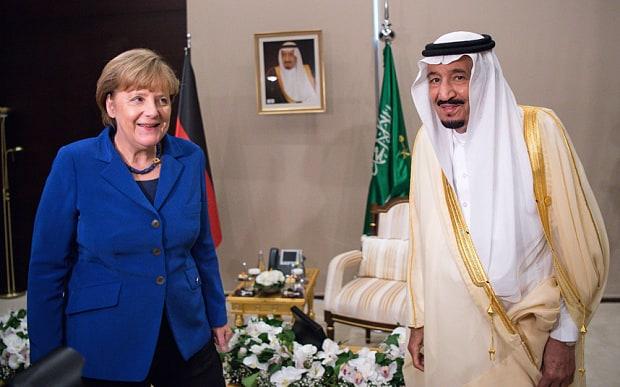Germany extended on 28/03/19 a ban on arms exports to Saudi Arabia despite being harshly criticized by its allies for taking such a stance.
However, a look at Germany’s domestic debate may shed light on the situation and help understand why the German Government keeps with to its decision.
Two reasons dominate the domestic political debate:
1. The German public was outraged by the death of Saudi journalist Jamal Khashoggi.
2. The parties that make up the German Government, i.e. that have the majority in parliament, signed a coalition contract. This contract states that no arms shall be exported to countries which are directly involved in the war in Yemen.
A. The first reason extends in its argumentation in the following way:
1. The German public is split in a way that the far-right wing party has risen due to increased immigration over the past years.
2. The climate towards immigrants coming from Arab states is very tense, as they are accused of taking over German culture, disobeying to gender-equality norms and generally violating Human Rights.This caused a shift in the voting behavior towards the right, with the effect of the ruling parties losing a substantial amount of support from the public.
3. The death of Jamal Khashoggi outraged the public as they found their image of the “Arab” confirmed.
4. There is consensus within the German public, that they do not want a government that will support another which is accused of killing a journalist from the opposition, i.e. an anti-humanitarian government.
5. If the ban is lifted, the far-right wing party might rise with the argument of being under leadership of a government that supports anti-humanitarian behavior.
6. Subsequently the Government saw itself in a position in which it had to act, as they cannot risk losing more votes to the right.
7. In conclusion to this argument it shows that this decision roots in a domestic power struggle.
B. At the bottom of the second reason lies the question of legitimization:
1. Germany is a constitutional State. This means that it obeys strictly by the laws it has given itself with the strong intention of avoiding political despotism.
2. Upon Government formation, the parties that make up the Government (CDU Christian Democratic Union, CSU Christian Social Union and SPD Social Democrat Party) signed a coalition contract.
3. As stated above, this contract prohibits Germany from exporting arms to countries that are directly involved in the war in Yemen.
4. So, if Germany defines itself as a constitutional state and if the government is elected by the people (i.e. it is ruling on behalf of the people) and the government gave itself the aforementioned restriction, then it cannot ignore its game rules without losing legitimacy.



